AJL Items Displayed on CTT
Item Set
Title
AJL Items Displayed on CTT
collection URL
Items
-

Jews United For Justice, Interview #3
The Baltimore chapter of Jews United for Justice, (JUFJ) is a grassroots community that seeks to repair the world by working locally for social, racial, and economic justice. A housing crisis in on the horizon. In this moment of uncertainty, it is critical to make sure our Baltimore City government protects its most vulnerable residents. During this crisis JUFJ, which organizes Jews around local policy issues, is mobilizing our community and using our power to amplify the voices and needs of those most directly impacted by injustice. JUFJ continues to organize for valuable housing protections. With our partners, we won an eviction moratorium to last until 90 days after the crisis. We are working to extend that. Our coalition is also advocated for late fees cancellations, rent rates to be frozen, and for additional money for rental assistance from the state and city government. Thanks in part to our advocacy, 300 of 700 people in the Baltimore shelter system are in hotels. We continue to work with our partners to get everyone using the shelter system into safe housing now. The CSRC grant will help support our efforts to bring about a more just housing system in Baltimore. Additionally, we will partner with the CSRC by providing an internship opportunity for 1-2 Morgan students to work collaboratively with our organization and with our partners: the Public Justice Center to learn about professional careers in organizing, advocacy, and legal support as interconnected activities. -

Jews United for Justice, Interview #2
The Baltimore chapter of Jews United for Justice, (JUFJ) is a grassroots community that seeks to repair the world by working locally for social, racial, and economic justice. A housing crisis in on the horizon. In this moment of uncertainty, it is critical to make sure our Baltimore City government protects its most vulnerable residents. During this crisis JUFJ, which organizes Jews around local policy issues, is mobilizing our community and using our power to amplify the voices and needs of those most directly impacted by injustice. JUFJ continues to organize for valuable housing protections. With our partners, we won an eviction moratorium to last until 90 days after the crisis. We are working to extend that. Our coalition is also advocated for late fees cancellations, rent rates to be frozen, and for additional money for rental assistance from the state and city government. Thanks in part to our advocacy, 300 of 700 people in the Baltimore shelter system are in hotels. We continue to work with our partners to get everyone using the shelter system into safe housing now. The CSRC grant will help support our efforts to bring about a more just housing system in Baltimore. Additionally, we will partner with the CSRC by providing an internship opportunity for 1-2 Morgan students to work collaboratively with our organization and with our partners: the Public Justice Center to learn about professional careers in organizing, advocacy, and legal support as interconnected activities. -
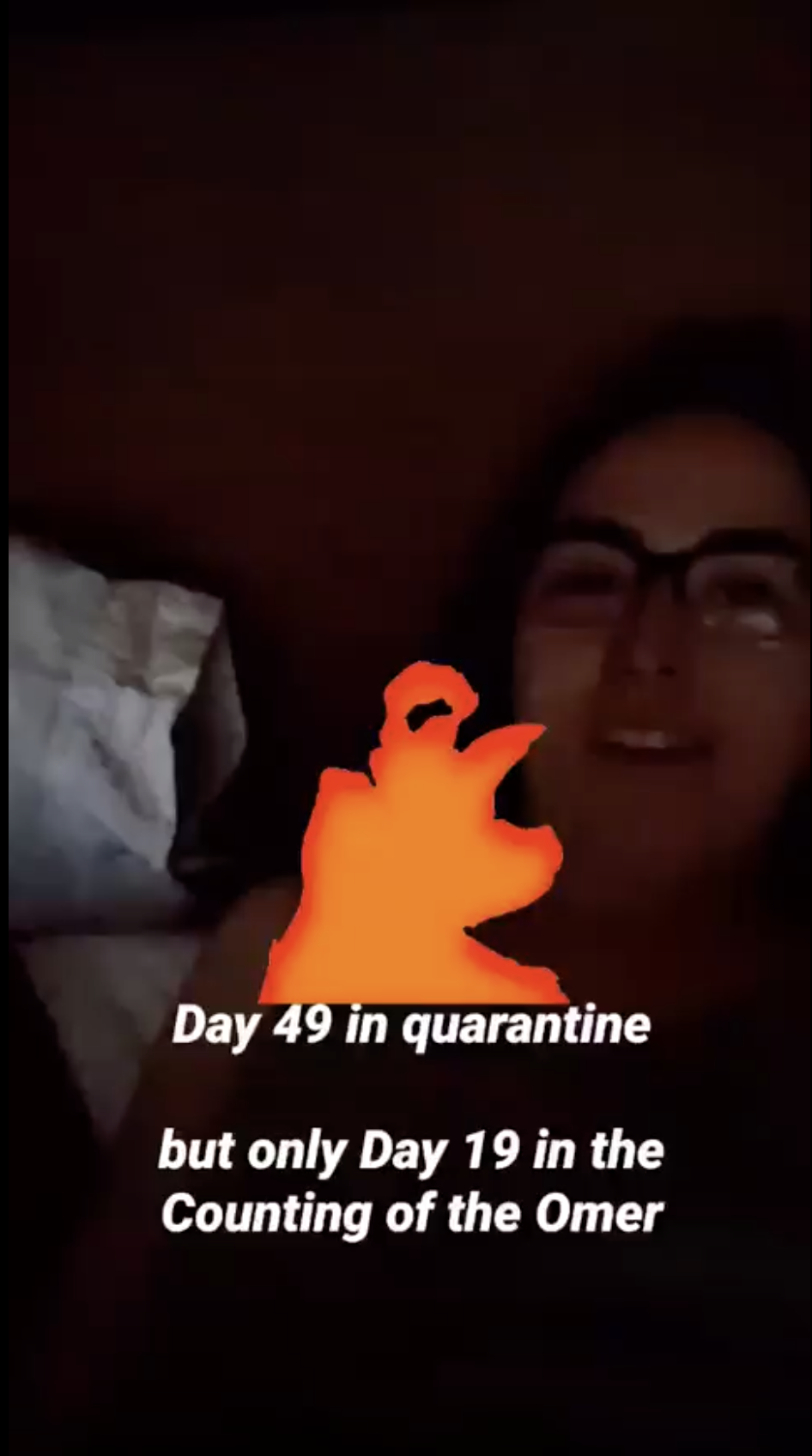
Counting of the Omer
Early in the pandemic, we thought it was funny to count the Omer versus the days we had been in quarantine, but that no longer became funny as the "two-week quarantine" dragged on indefinitely. -

Travel to Nowhere: 2020 in Long Beach, California
Our trip to every corner of our apartment in 2020. The song is called "Tira a campà" (Neapolitan dialect for "Tirare a campare") by Enzo Jannacci. -
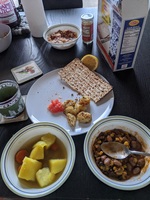
Struggle Seder
We didn't have any fresh vegetables for chazeret so we used dried oregano! Karpas was cilantro. We made haroset from fruits we already had, such as pineapples and cranberries -- not very good! At least we had an unopened box of Osem brand matzah in the pantry left over from Passover 2019 (doesn't sound kosher, I know). My husband is Yemenite and at the very least we had delicious food in the form of Yemenite soup and kitniyot (Mexican beans and corn). -

Aftermath of the Chametz Struggle
On the afternoon of Nissan 14, 5780 or April 8, 2020, a rabbi contracted through Chabad.org sold the rights to our chametz to a gentile for the duration of the Passover holiday. The chametz was still physically present in our home and the temptation proved too great for my husband, who was eating the gentile's cake within hours of the transaction. -
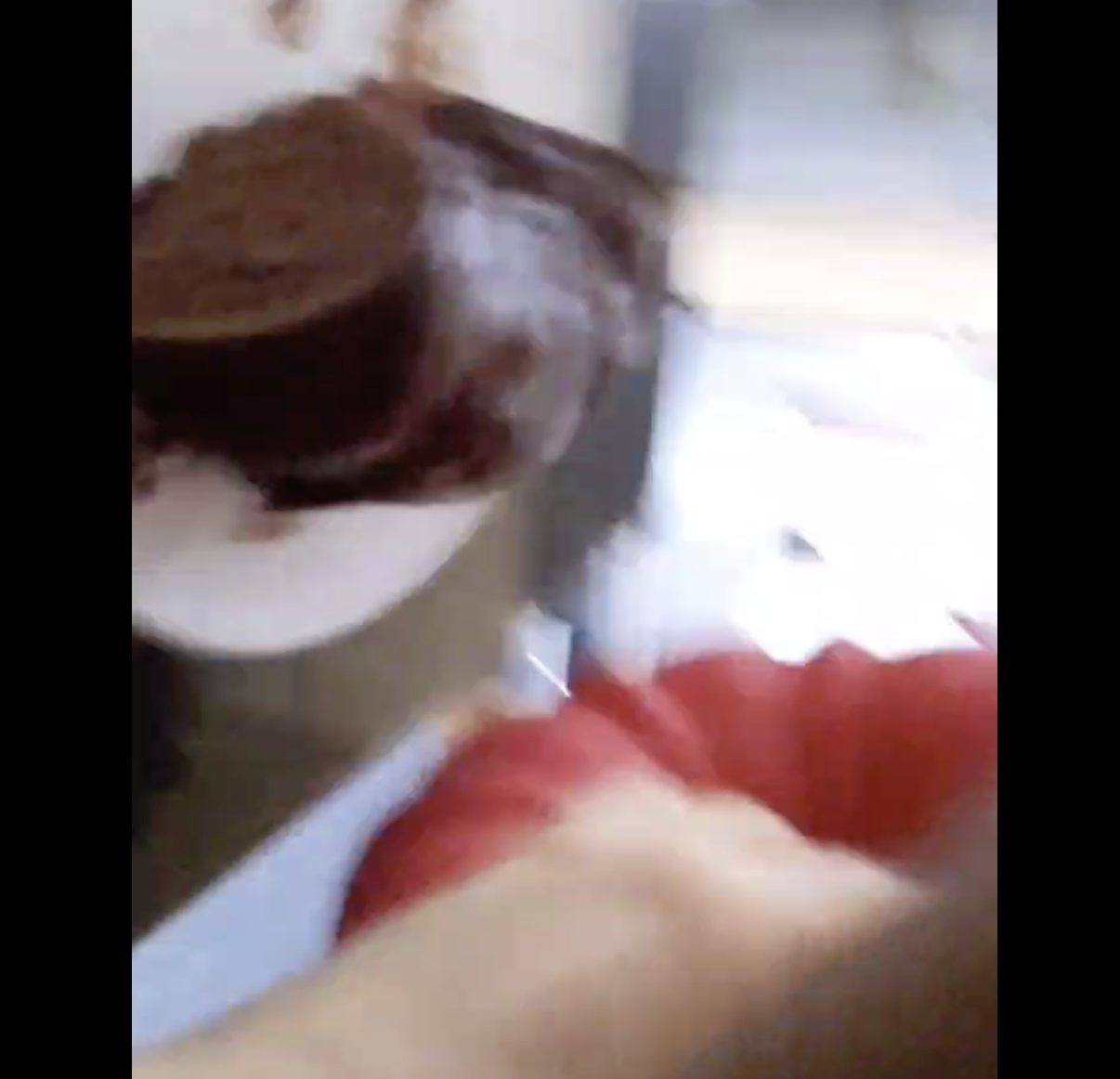
Chametz Struggle
On the afternoon of Nissan 14, 5780 or April 8, 2020, a rabbi contracted through Chabad.org sold the rights to our chametz to a gentile for the duration of the Passover holiday. The chametz was still physically present in our home and the temptation proved too great for my husband, who was eating the gentile's cake within hours of the transaction. -
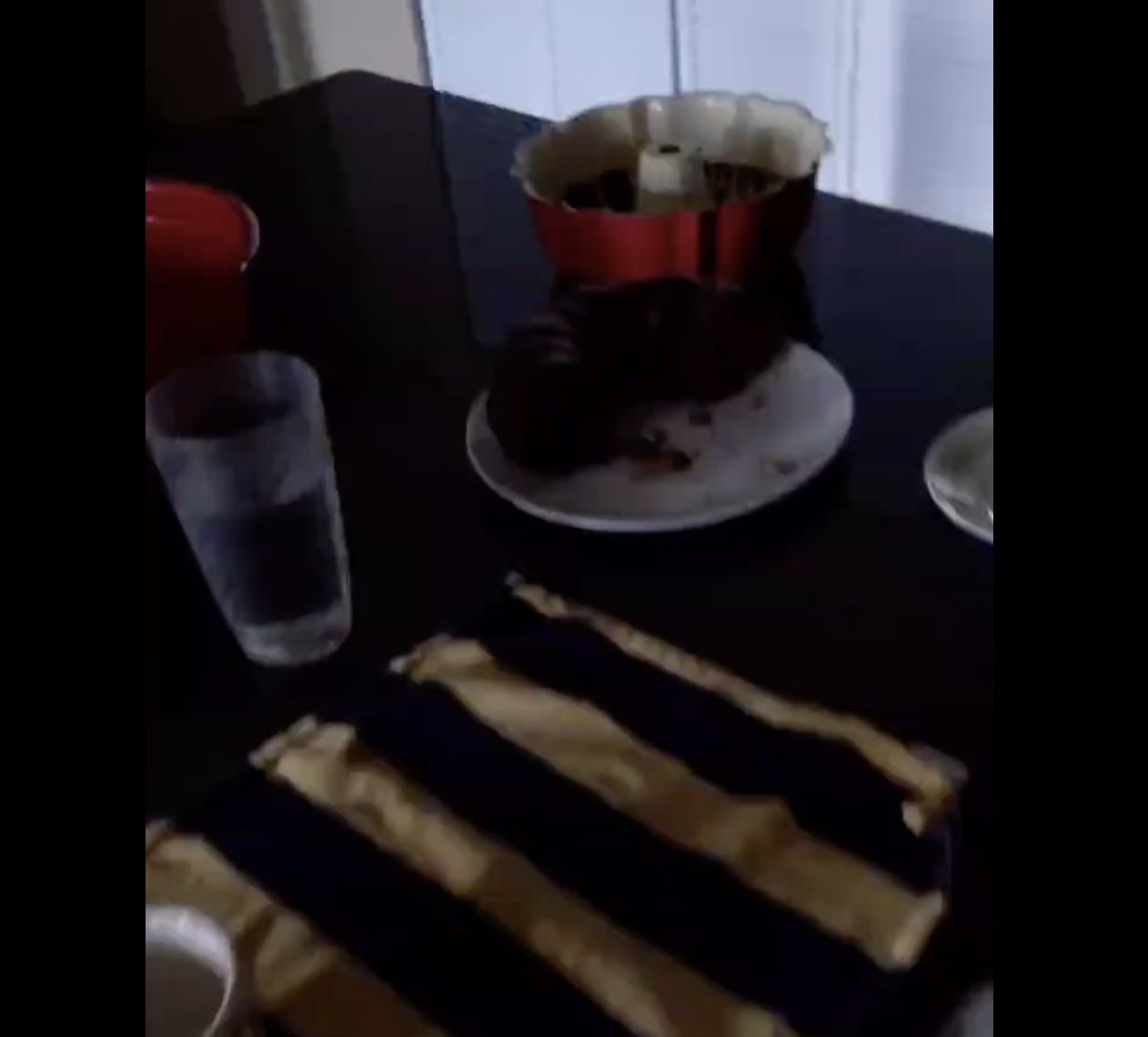
Caught in the Act
On the afternoon of Nissan 14, 5780 or April 8, 2020, a rabbi contracted through Chabad.org sold the rights to our chametz to a gentile for the duration of the Passover holiday. The chametz was still physically present in our home and the temptation proved too great for my husband, who was eating the gentile's cake within hours of the transaction. -
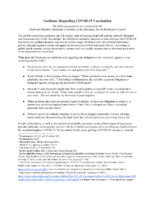
MJRC Guidance Regarding COVID-19 Vaccination
The following guidance was prepared by the Faith and Halakhic Standards Committee of the Messianic Jewish Rabbinical Council. The global coronavirus pandemic has left a tragic (and still-rising) death toll and has radically disrupted our communal way of life. Meanwhile, the worldwide scientific endeavor to find solutions for COVID-19 immunity has yielded numerous vaccines in various stages of clinical trial, two of which have been proven (through rigorous testing and approval processes) to be both safe and effective. According to public health experts, ending the pandemic soonest and most safely requires that a substantial proportion of the population be vaccinated. What does the Torah and our tradition teach regarding the obligation to be vaccinated against a virus spreading pandemically? -
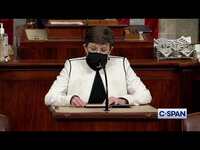
Daily Congress Prayer, House, February 26, 2021, Chaplain Kibben: COVID relief bill & Purim miracle
This video, contributed by Howard Mortman (Communications Director at CSPAN), shows House chaplain Kibben opening Congress with a prayer whose message combines the $1.9T COVID relief bill and the Purim miracle -
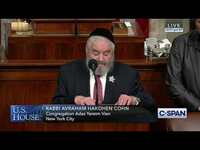
Rabbi Romi Cohn: His Prayer in Congress and Remarks After His Passing
These videos, contributed by Howard Mortman (Communications Director at CSPAN), center around Rabbi Romi Cohn. As Mortman notes in his book (see Source), Cohn was a Holocaust survivor and member of the Jewish underground in his native Czechoslovakia. He delivered the House prayer on January 29, 2020-- 75 years after the liberation of Auschwitz. Unfortunately, Cohn died from COVID-19 two months after delivering his house prayer. He is remembered in the House daily prayer on March 27, 2020. -
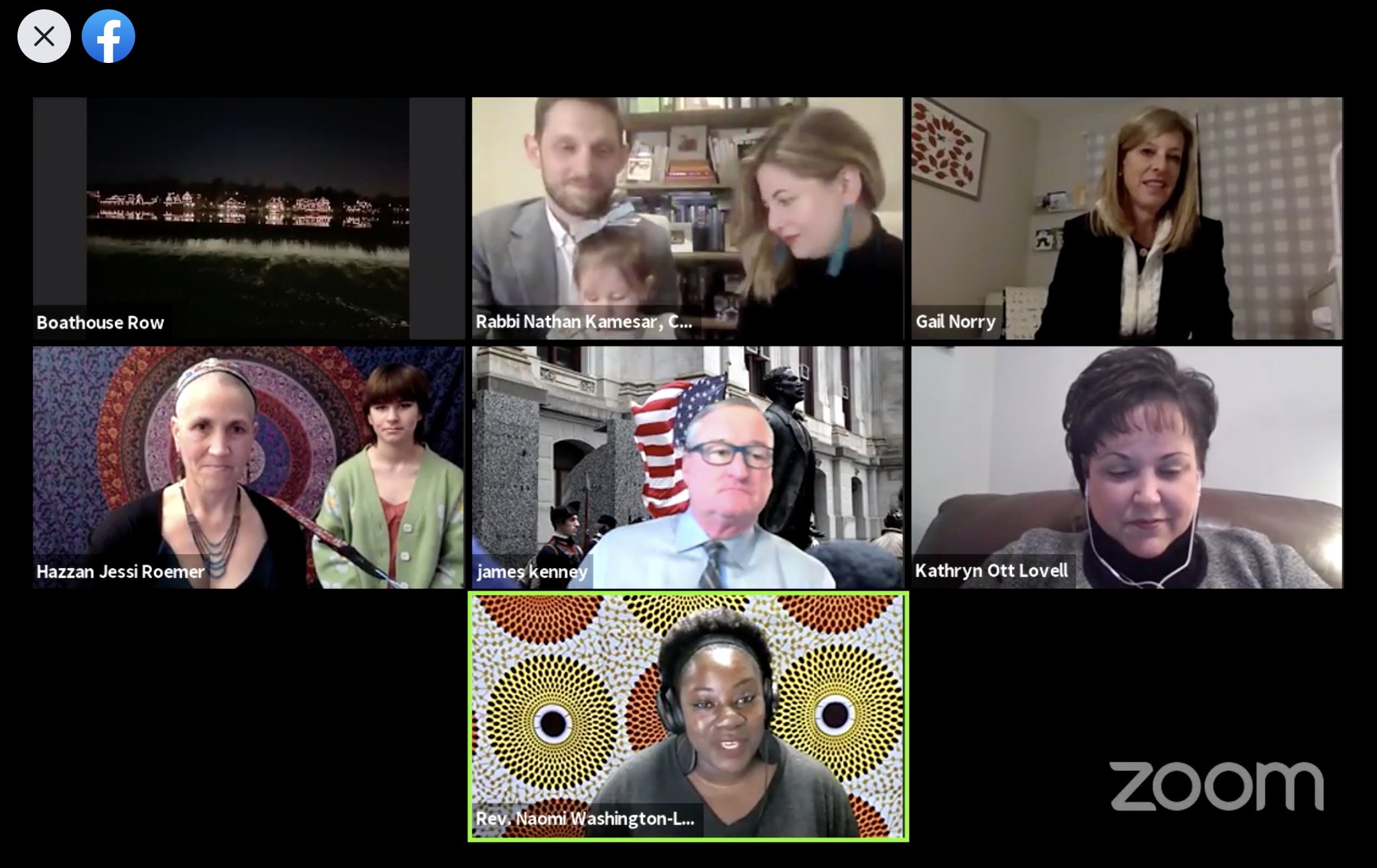
Hanukkah Lighting on Boathouse Row
The Mayor's Office of Public Engagement hosted their Hanukkah lighting on Zoom and shared it via Facebook Live. -
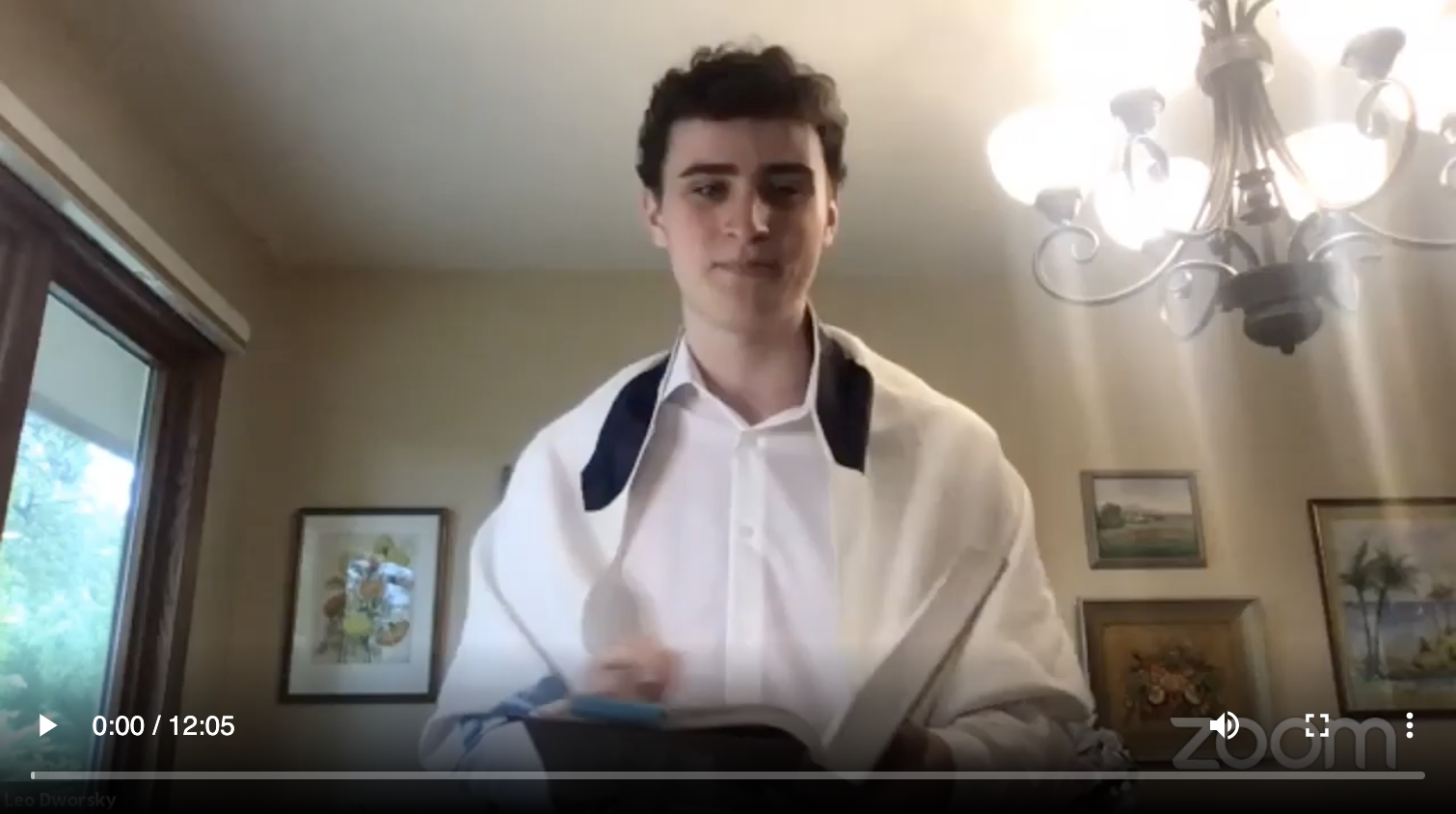
Sermon from Rabbi Olitzky - Ivri: Traditional Service - Rosh Hashanah Day 1
Rosh Hashanah Virtual Sermon -
Conservative Judaism in Northampton
Noah Barondes interrupted his October bar mitzvah ceremony to ask, to no one in particular, “Where are they going?” This ‘they’ would be the twenty some masked and socially distanced bar mitzvah attendees, caught in the act of an awkward, would-be surreptitious shuffle to the sunlight from the cold shaded tent they were originally sitting in. This disturbance in the ceremony, although relatively humorous, is just one of the many disruptions of Northampton’s Congregation B’nai Israel’s services induced by the pandemic. Unable to meet in person due to the risk of COVID-19 transmission, the synagogue has been forced to move its services online for streaming. This proved an immediate issue, as Conservative Jews practice Shabbat by not using electronic media (including taking pictures or being photographed, as streaming requires). This creates a whole host of restrictions most other religious groups did not have to consider when transitioning to an online service format. In addition to this, services at Congregation at B’nai Israel feature a strong focus on cooperative, communal prayer, and leading that prayer over the Internet is much more difficult than in-person. Normally, attendees would sing all together, creating lots of energy, but being on Zoom or a live-streamed service makes that kind of connection impossible. Services can feel inauthentic as religious experiences and more like chores, since many people are doing their jobs over Zoom, sitting in the same place in their home and at the same computer they work from. And that’s not even to mention the ways Zoom shortens people’s attention spans, making it far more difficult to sit down and concentrate on prayer. To adapt to these challenges created by the pandemic, Congregation B’nai Israel and its leaders have looked to the larger Jewish community and authority to guide their decisions on how to continue practicing their religion and reaching all members of their community at a time when they cannot be together. While it was unconventional and potentially against Jewish law to move services online, the United Synagogue of Conservative Judaism, the larger organization the Congregation is part of, was able to find solid rationale for bending those restrictions in order to keep people connected to their Jewish communities. For their part, Congregation B’nai Israel has made some adjustments to their services in order to make them more Zoom-friendly. For one thing, they have made services shorter, in order to combat that reduced attention span of service attendees. Their Shabbat morning services have shifted to become more focused on conversation and study of different texts, with a few prayers in the beginning and end of the service. The attendees seem to really enjoy this, but it’s unclear whether the new format will continue once the pandemic is over. Congregation B’nai Israel also monitors and responds to the pandemic with their personal COVID-19 task force, which includes a few infectious disease experts as well as the synagogue president. They work together to come up with recommendations on what will be safe for the community to do as far as in-person gathering, and whatever they say is carried out. At the moment, they have considered it safe to provide a few, heavily limited opportunities for in-person worship, one of which was Noah Barondes’s bar mitzvah. These gatherings are restricted to a specific size, and social distancing measures and masks are enforced at all times. In addition to these structural adaptations to the pandemic, Rabbi Justin David adapted the contents of his service too. He infused Barondes’s bar mitzvah with themes of hope and resilience, referencing the various tragedies of humanity in the Hebrew Bible and reminding the congregants that nevertheless, humanity persevered. This communal acknowledgement of suffering combined with the assurance that the community will survive is a reminder that religion is more than its rituals and practice: it’s a source of collective, spiritual strength in times of adversity. In a way, CBI’s services themselves act as a natural adaptation to the pandemic by providing a response to coronavirus anxieties. -
Prizmah Knowledge Center Resources on Finances Amidst the COVID-19 Pandemic
Prizmah is the network for Jewish day schools across North America. This is a collection of Prizmah's Knowledge Center resources that address general finances, financial aid, and budgeting during the COVID-19 pandemic. -
Prizmah Knowledge Center Resources on Mental Health & Emotional Support
Prizmah is the network for Jewish day schools across North America. This is a collection of Prizmah's Knowledge Center resources that address mental health and emotional support for families and their children. -
Prizmah Blog Posts on Mental Health & Emotional Support
Prizmah is the network for Jewish day schools across North America. This is a collection of blog posts that talk about mental health and emotional support. -
Prizmah Blog Posts on Celebrating Holidays during Covid-19
Prizmah is the network for Jewish day schools across North America. This is a collection of blog posts that talk about celebrating the holidays amidst the COVID-19 pandemic. -
Prizmah Knowledge Center Resources to Celebrate Holidays during Covid-19
Prizmah is the network for Jewish day schools across North America. This is a collection of Prizmah's Knowledge Center resources that help families celebrate holidays amidst the COVID-19 pandemic. -
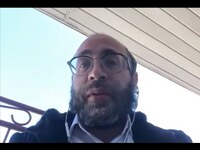
450+ Rabbis Sign NYJA Statement and Press Conference Video
In this virtual press conference held by the New York Jewish Agenda, more than 450 rabbis, cantors, and other religious leaders joined together to speak out in favor of life-saving, geography-based COVID-19 protective measures. The event also featured Jacob Kornbluh, a Jewish journalist who was assaulted during the October 7th protest and riots in Boro Park. -
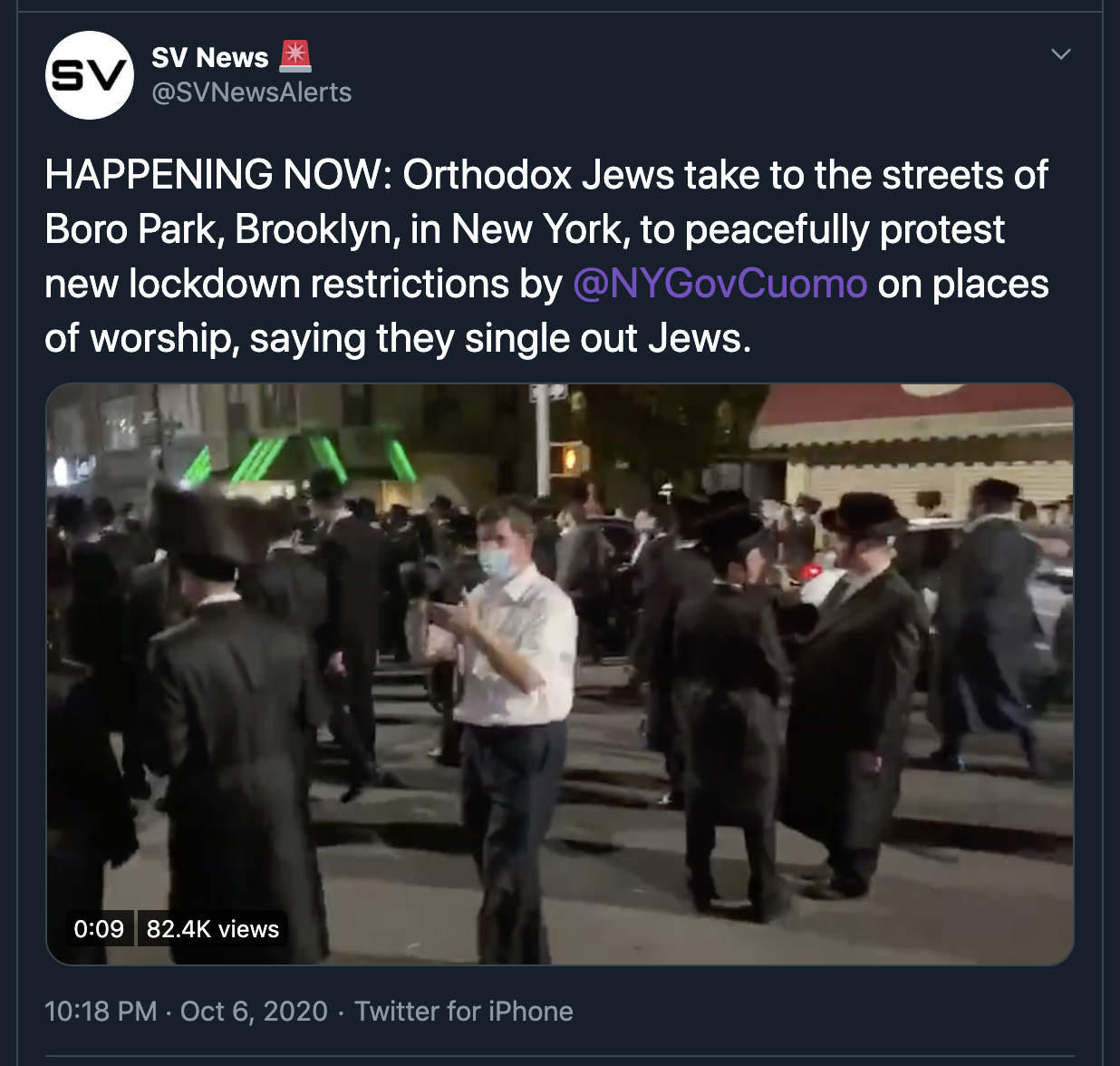
SV News Coverage of the Boro Park Protests
These tweets from @SVNewAlerts cover the New York City police dispersing the crowds gathered to celebrate the Sukkot holiday and the later protests of Governor Andrew Cuomo's lockdown of synagogues. The lockdown comes as COVID-19 spikes in nine New York City communities. -
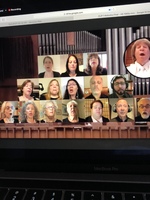
High Holidays on Zoom, including Zoom Choir
Rabbi Sunny Schnitzer and BJC Zoom Choir singing on Yom Kippur 2020, Bethesda Jewish Congregation, Bethesda, Maryland. -
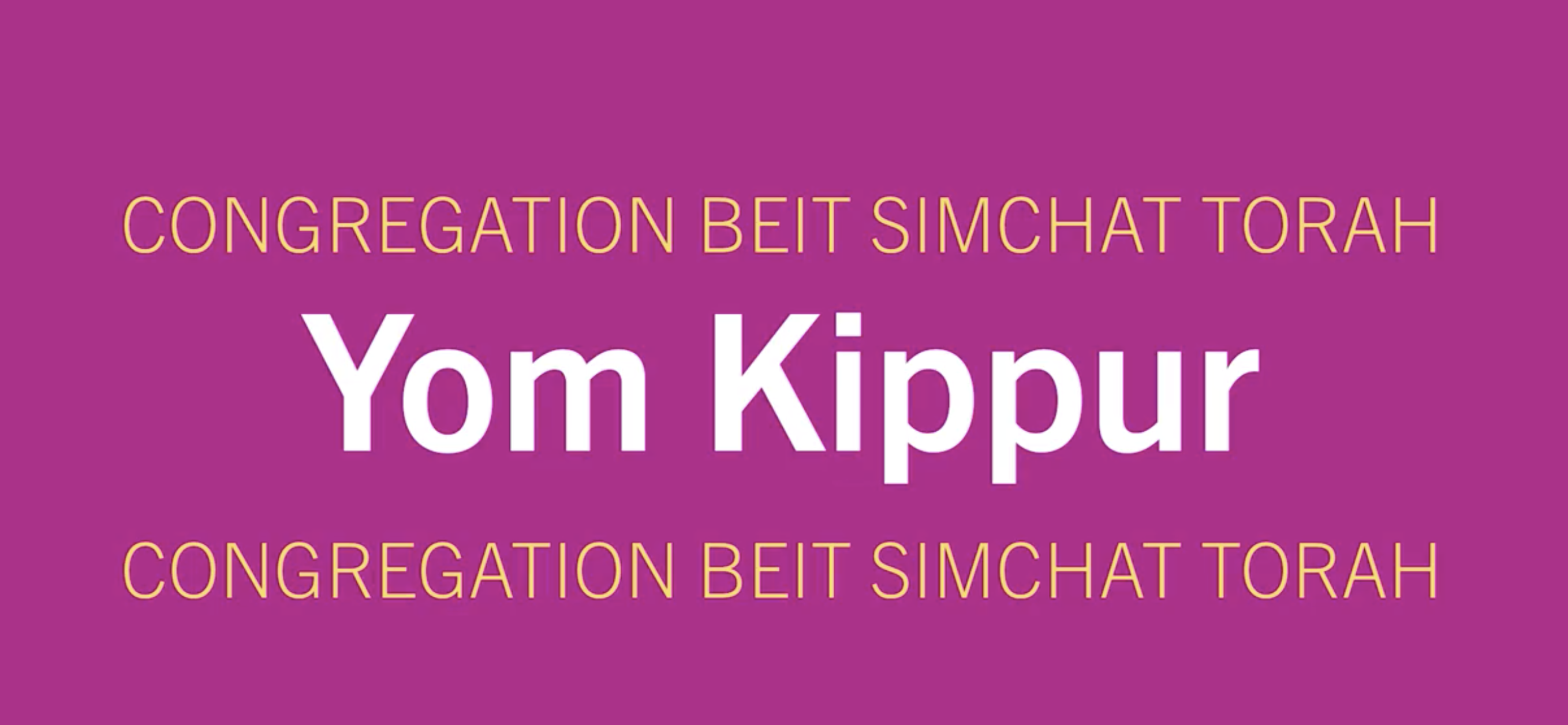
Congregation Beit Simchat Torah's Yom Kippur Neilah Service
Congregation Beit Simchat Torah is a "vibrant spiritual community and a progressive Jewish voice. Founded in 1973, CBST attracts and welcomes gay men, lesbians, bisexuals, transgender, queer, and straight individuals and families who share common values." CBST livestreamed their Yom Kippur Neilah Service so members of its congregation, and those across the country, could join in despite COVID-19 restrictions on gatherings. -

Rosh HaShanah services in under three minutes
Through Instagram Reels, a TikTok copycat, I condensed Rosh HaShanah services down to just two and a half minutes. I mostly made it in the empty sanctuary of Congregation KTI in Port Chester, NY. I had seen plenty of creative technological adaptations of high holiday liturgy, but none using the short music video format popularized by TikTok. So I decided to go for it! The Shofar filter on Instagram that I use in the video comes from Valley Beth Shalom, a synagogue in Los Angeles. -
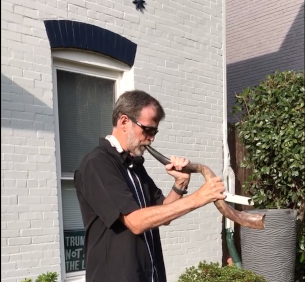
The Blast Erev Rosh Ha Shanah 2020
My non-Jewish (who none-the-less raised 3 Jewish children) husband and past sax and clarinet player joined The Blast on Capitol Hill NE on Erev Rosh Hashanah